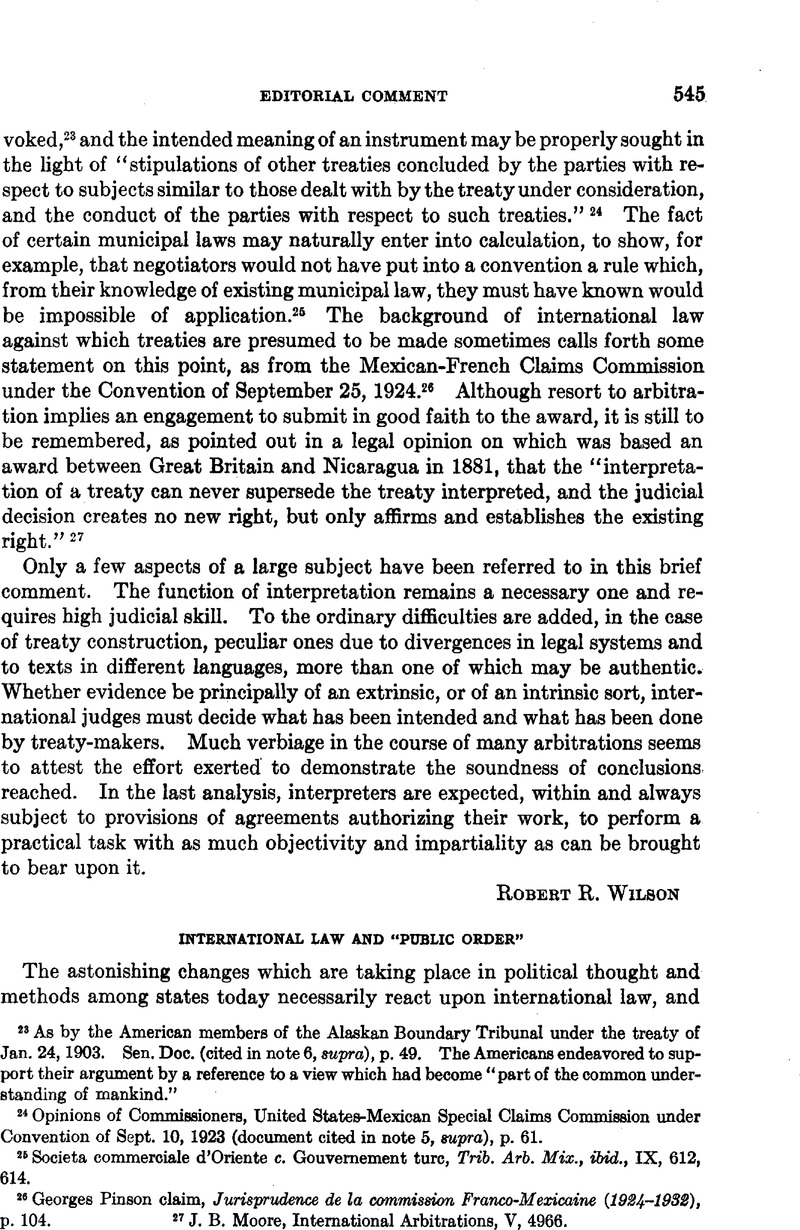No CrossRef data available.
Article contents
International Law and “Public Order”
Published online by Cambridge University Press: 12 April 2017
Abstract

- Type
- Editorial Comment
- Information
- Copyright
- Copyright © American Society of International Law 1939
References
1 Habicht, M., “The Application of Soviet Laws to the Exception of Public Order,” this Journal, Vol. 21 (1927), p. 238 Google Scholar. See also Briggs, Herbert, The Law of Nations (New York, 1938), pp. 95–97 Google Scholar.
2 This JOURNAL, Supplement, Vol. 13 (1919), p. 426.
3 As to this point, see the questions raised by Brierly, J. L., Recueil des Cours, Académie de Droit International, 1936, Vol. 58, p. 170 Google Scholar; Freeman, A. V., in The International Responsibility of States for Denial of Justice (London, 1938), pp. 515–521 Google Scholar; and the address of Professor Borchard and discussion following in PROCEEDINGS of the American Society of International Law, 1939, p. 51 ff.
4 “The fact that individual states have officially adopted communism does not, of course, change or influence international law as long as the majority of states are opposed to it.” Feilchenfeld, E. H., in Public Debts and State Succession (New York, 1931), p. 636.Google Scholar
5 See also the case of Polish Upper Silesia, Series A, No. 7, p. 22.
6 “The court would never, for instance, apply a convention the terms of which were contrary to public morality. . . . The attitude of the tribunal should, in my opinion, be governed in such a case by considerations of international public policy, even when jurisdiction is conferred on the court by virtue of a special agreement.” P. C. I. J., Series A/B, No. 63, p. 150. See also the article by Niboyet, in A. de La Predelle and J. Niboyet, P., Répertoire de Droit International (Paris, 1931), Vol. X, p. 160 Google Scholar.
7 See the article by Habicht to which reference has been made above.


